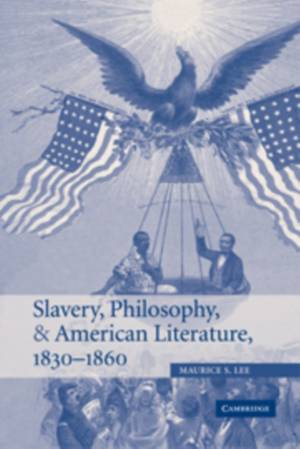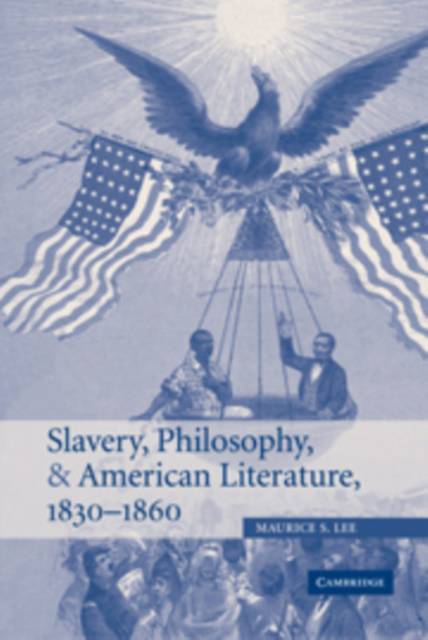
- Afhalen na 1 uur in een winkel met voorraad
- Gratis thuislevering in België vanaf € 30
- Ruim aanbod met 7 miljoen producten
- Afhalen na 1 uur in een winkel met voorraad
- Gratis thuislevering in België vanaf € 30
- Ruim aanbod met 7 miljoen producten
Zoeken
Omschrijving
Examining the literature of slavery and race before the Civil War, Maurice Lee, in this 2005 book, demonstrates how the slavery crisis became a crisis of philosophy that exposed the breakdown of national consensus and the limits of rational authority. Poe, Stowe, Douglass, Melville, and Emerson were among the antebellum authors who tried - and failed - to find rational solutions to the slavery conflict. Unable to mediate the slavery controversy as the nation moved toward war, their writings form an uneasy transition between the confident rationalism of the American Enlightenment and the more skeptical thought of the pragmatists. Lee draws on antebellum moral philosophy, political theory, and metaphysics, bringing a different perspective to the literature of slavery - one that synthesizes cultural studies and intellectual history to argue that romantic, sentimental, and black Atlantic writers all struggled with modernity when facing the slavery crisis.
Specificaties
Betrokkenen
- Auteur(s):
- Uitgeverij:
Inhoud
- Aantal bladzijden:
- 232
- Taal:
- Engels
- Reeks:
- Reeksnummer:
- nr. 148
Eigenschappen
- Productcode (EAN):
- 9780521152686
- Verschijningsdatum:
- 26/08/2010
- Uitvoering:
- Paperback
- Formaat:
- Trade paperback (VS)
- Afmetingen:
- 152 mm x 229 mm
- Gewicht:
- 344 g

Alleen bij Standaard Boekhandel
+ 121 punten op je klantenkaart van Standaard Boekhandel
Beoordelingen
We publiceren alleen reviews die voldoen aan de voorwaarden voor reviews. Bekijk onze voorwaarden voor reviews.











